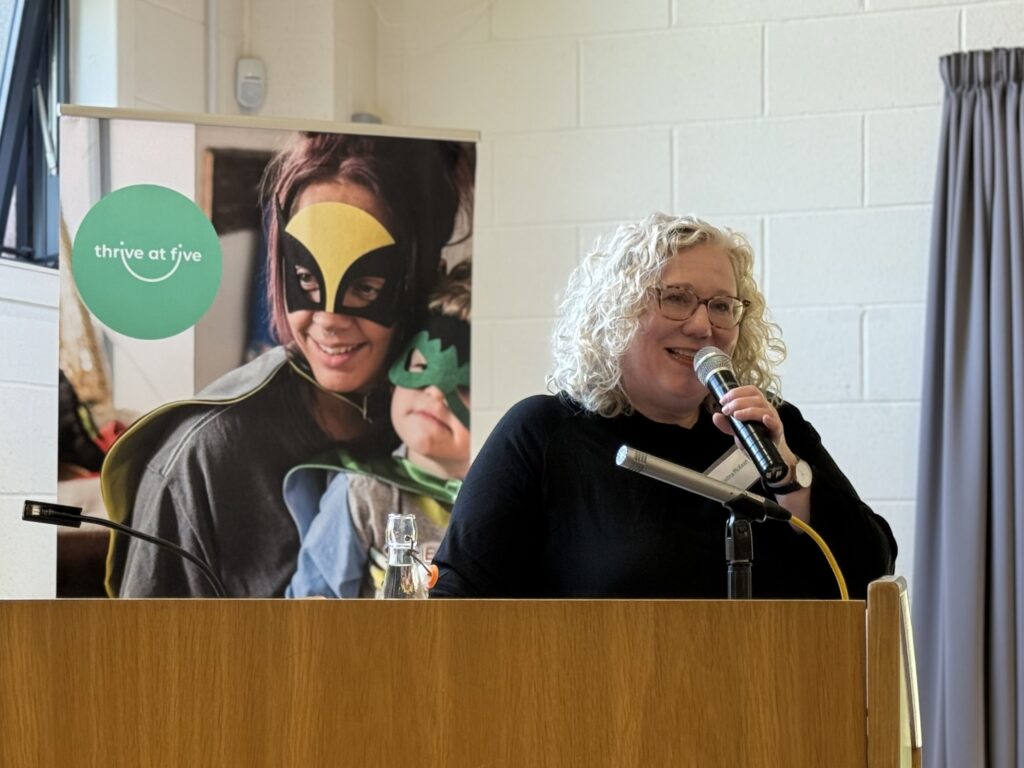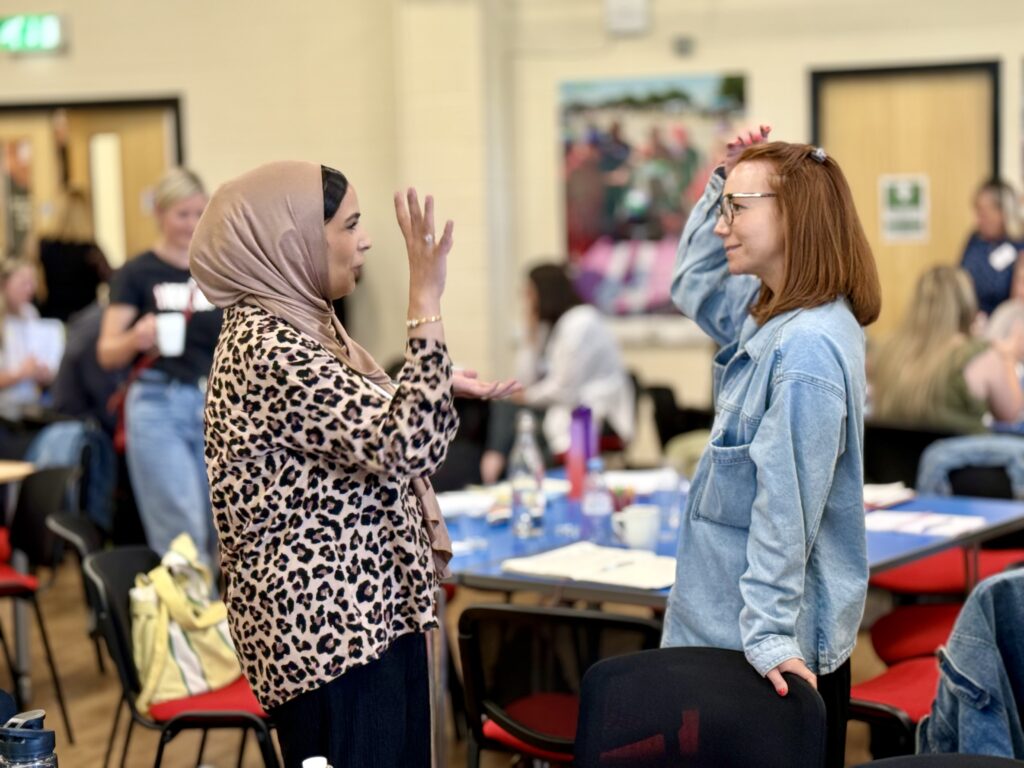
Language and communication skills contribute to so much more than just speech and literacy for young children’s development. They play a vital role in self-regulation, ability to express emotions and say how they’re feeling, and building relationships with other children. There is a wealth of evidence showing that challenges in these areas at the age of five extend well into adulthood and are a predicator of future life outcomes, from educational attainment and employment to mental health and overall quality of life.
That’s why this is one of our intermediate outcomes and a priority area of focus for us. So, this June, we convened over 100 professionals from across education settings and services, statutory and voluntary, in Redcar & Cleveland along with early years experts to learn, connect and share ideas about how we can improve early language and communication for children across the borough. Practitioners shared that it has been years since they’ve had an opportunity to come together to learn and collaborate in this way.
A few key takeaways from the day included:
💡 Research has identified five key elements which are present in a language rich early years classroom:
- Exposure: using every moment of a day to expose children to high quality language
- Deliberateness: be intentional with the language you use, how you vary and tailor it to individual children
- Recurrence: repeat, repeat, repeat
- High quality input: use diverse language in terms of its vocabulary, sentence structures and purposes
- Adult responsiveness: be reliable, engaged and sensitive
💡 There is a difference between language and communication. Speech is a vital part of this skill development, but how children communicate is so much more than this. It includes how they play, use their imagination, how they interact with other children and adults and how they choose to express themselves. It’s so important we facilitate and nurture this alongside speech.
💡 Creating partnerships and engaging with parents is crucial. From clearly communicating what their children are learning, to defining what success looks like and really simple ways they can support their child’s learning at home, it’s our responsibility to inspire and encourage parents to dedicate time and effort to their child’s learning.
💡 The importance of using data and measurement to support professionals and provide the most tailored solutions and interventions for children, and enable us to respond to children’s needs in the most effective way possible.
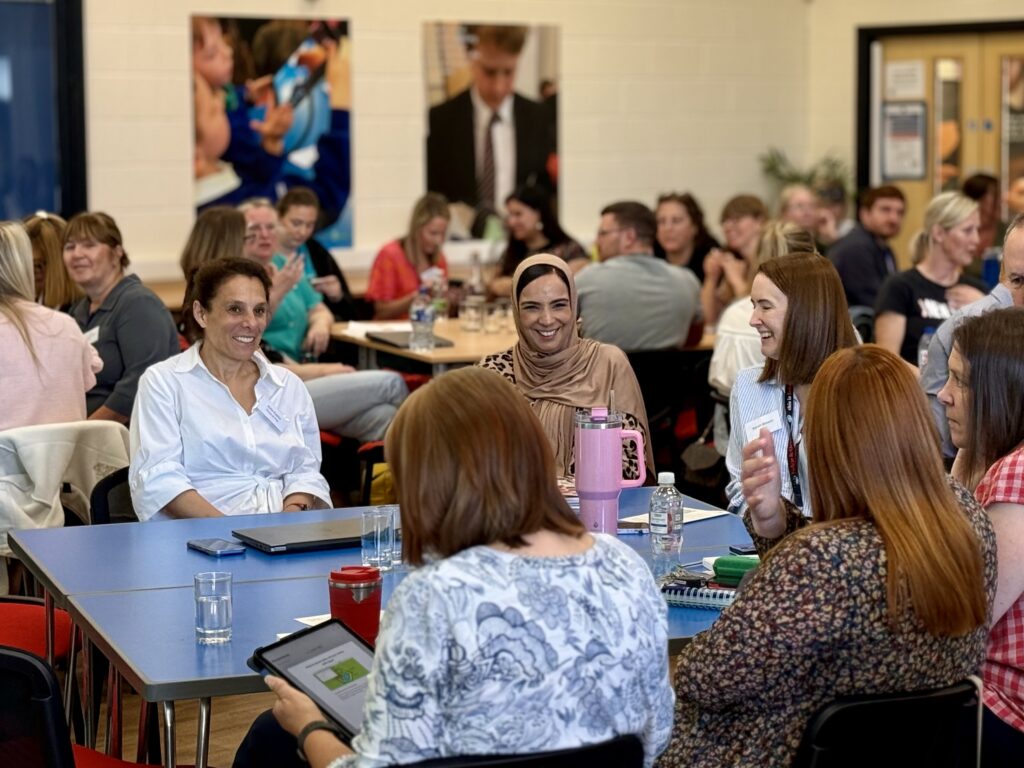
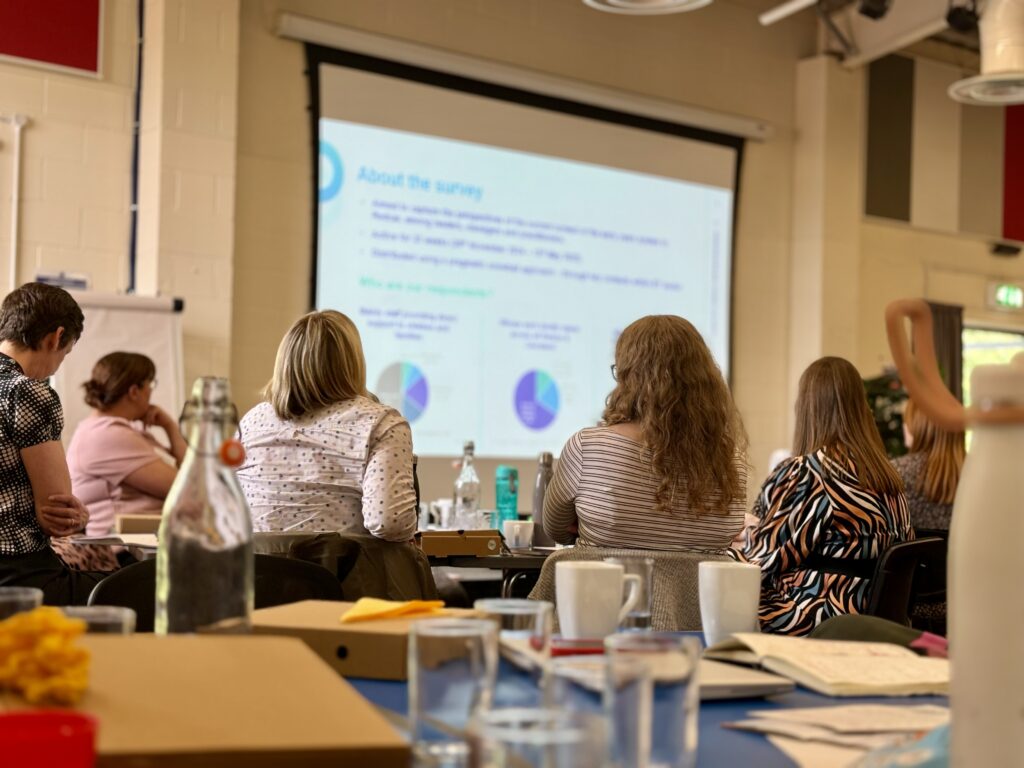
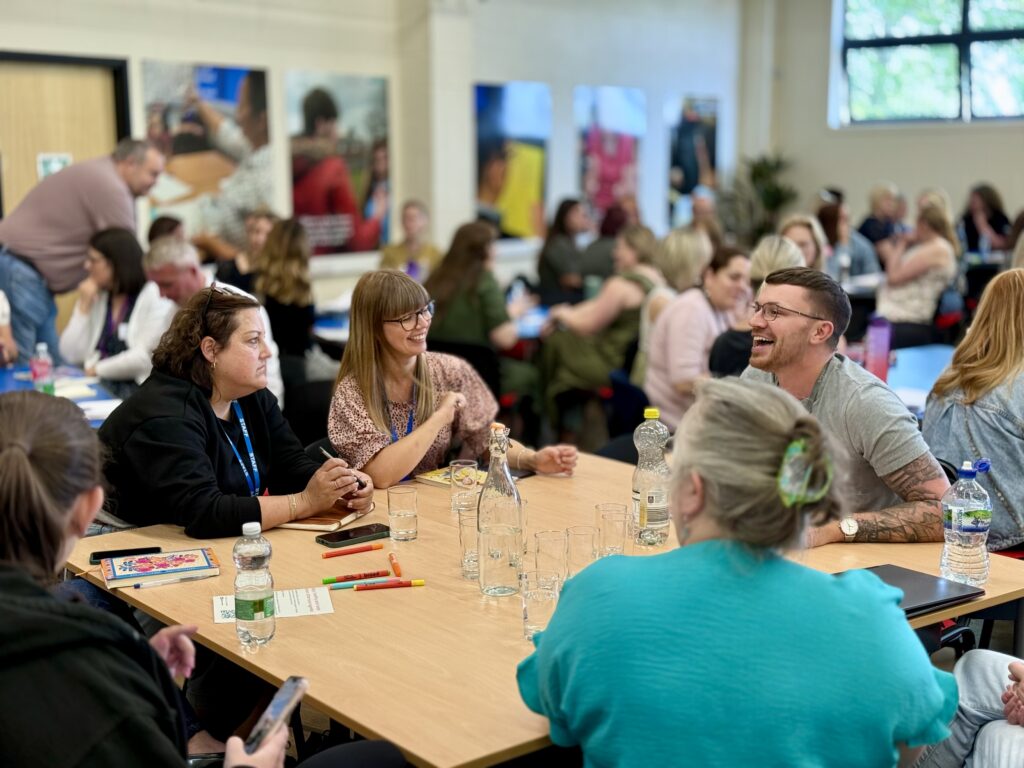
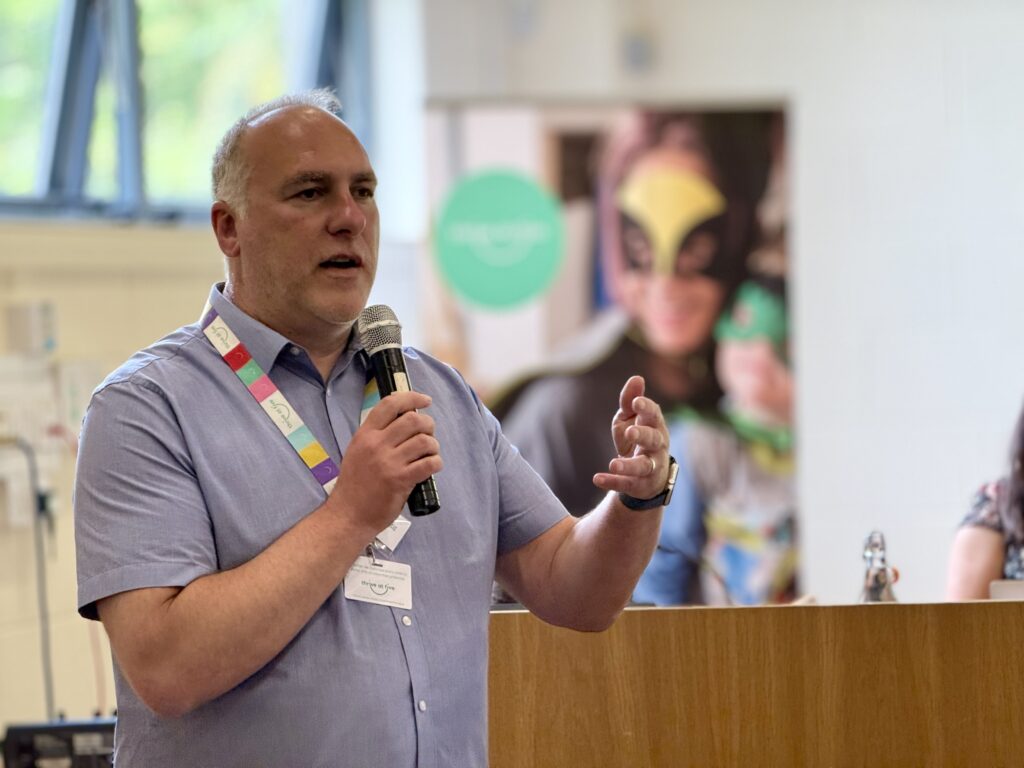
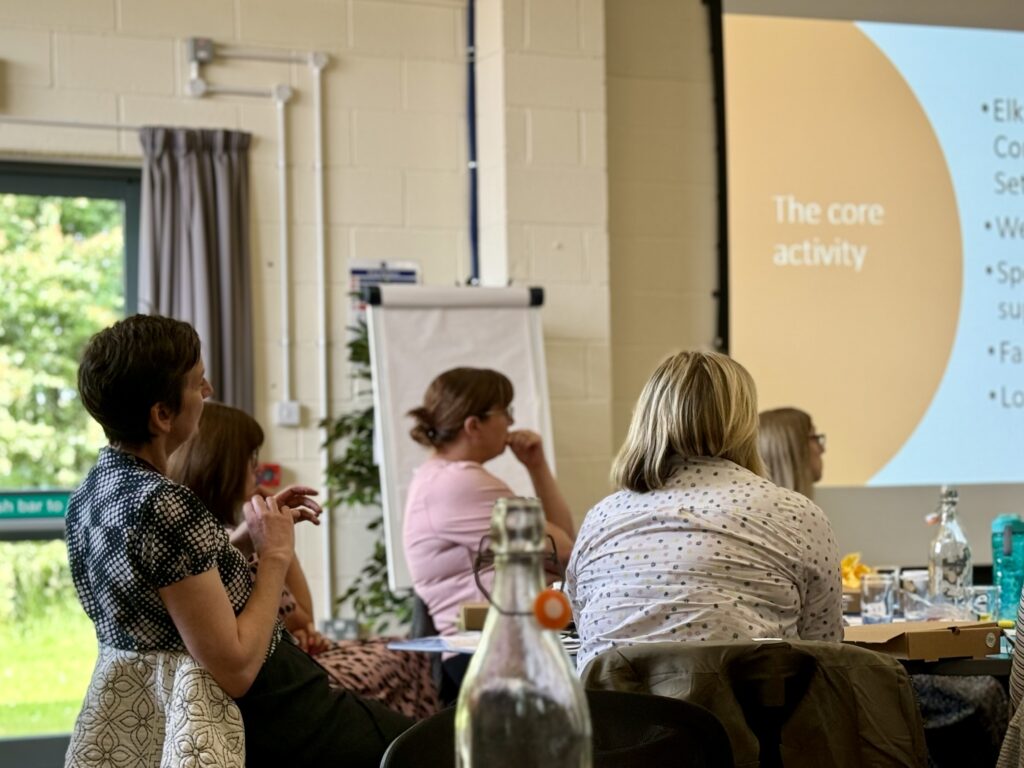
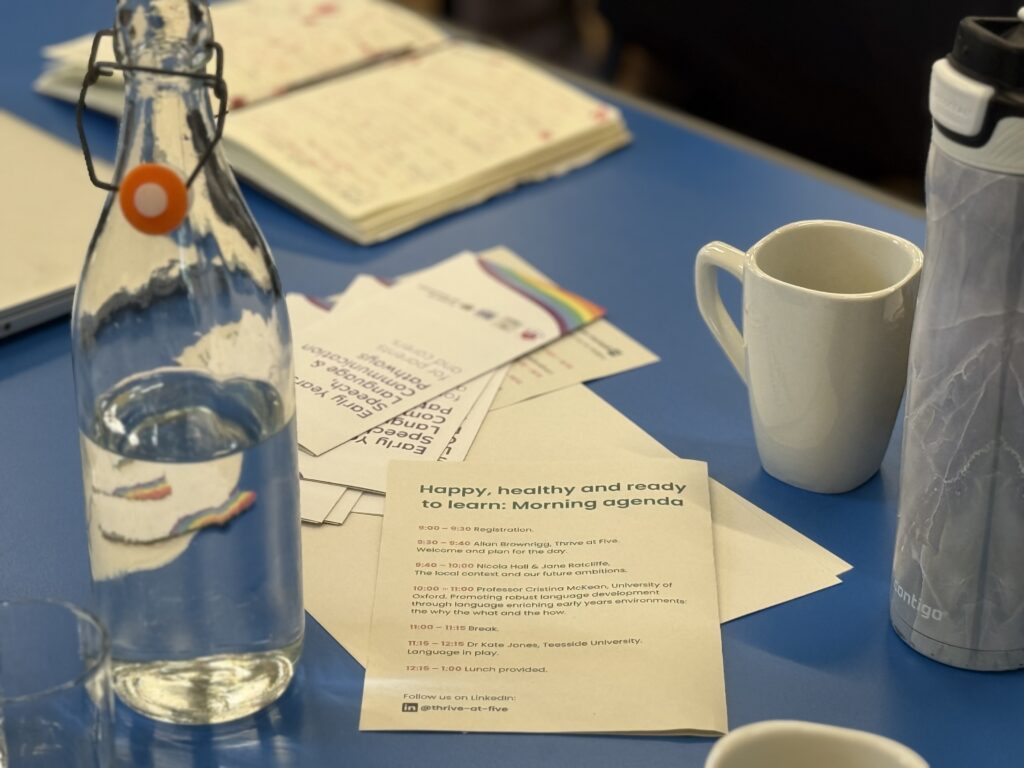
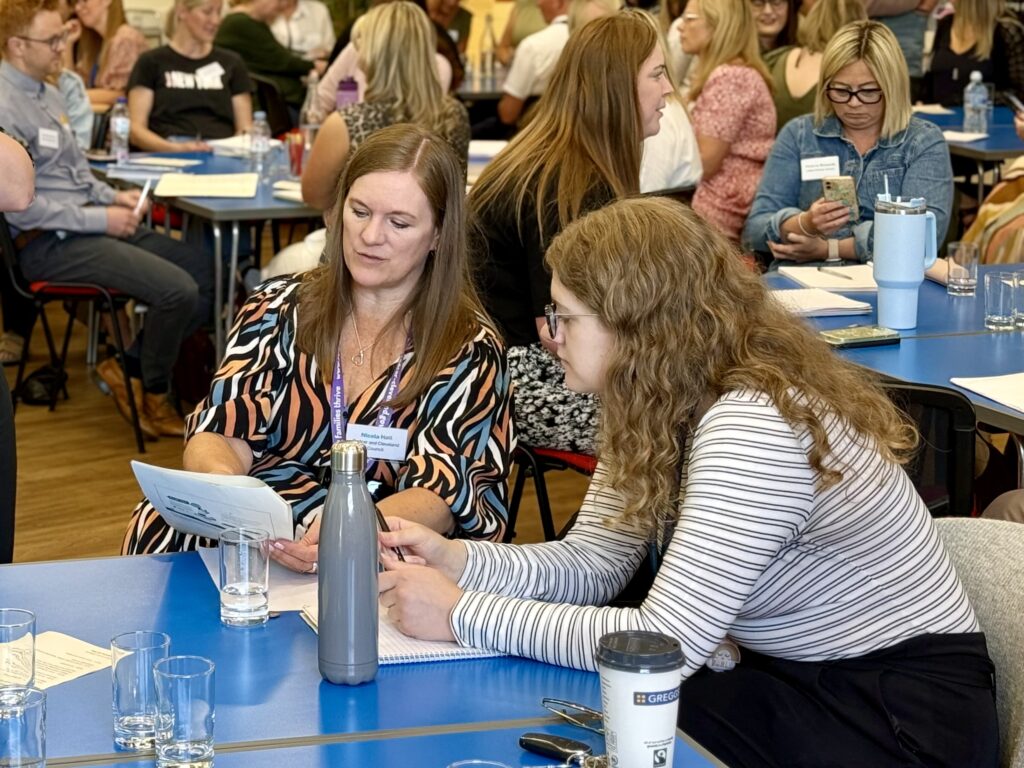
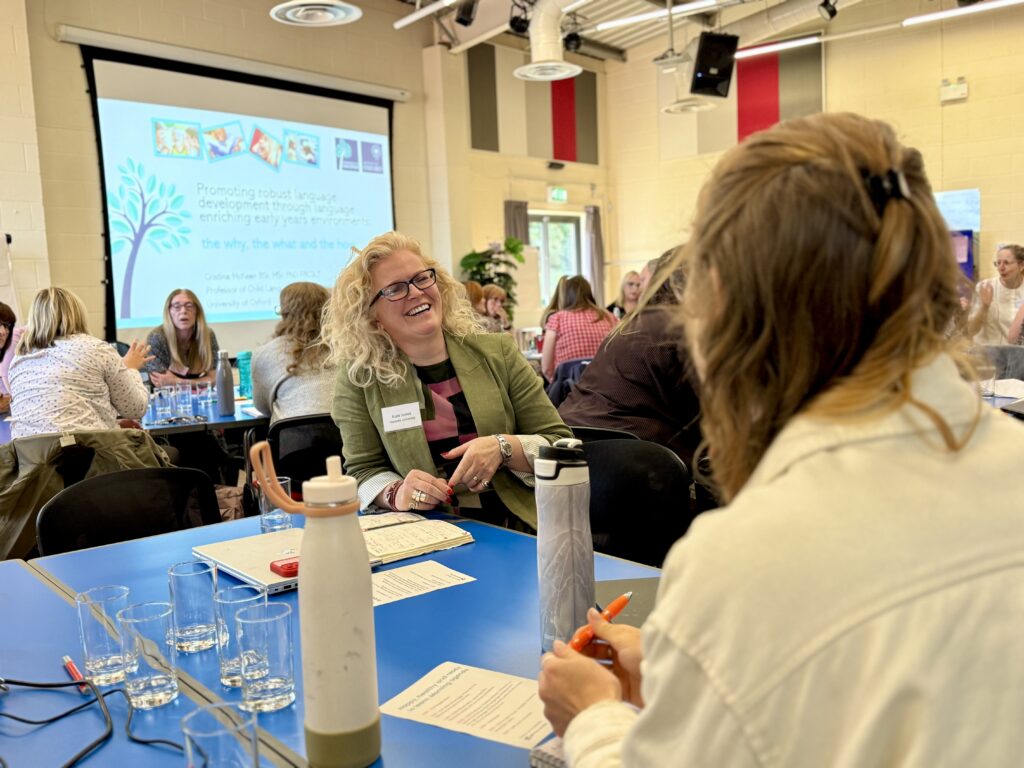
A huge thank you to our speakers Cristina Mckean, Kate Jones, Rob N. and Farzana Hussain, and to everyone who came. Moving forward, we’ll be working to facilitate more opportunities for joined up working and sharing of best practice, as well as looking at the way we can use tools and resources to support identification and assessment of needs to help ensure children get the support they deserve.

